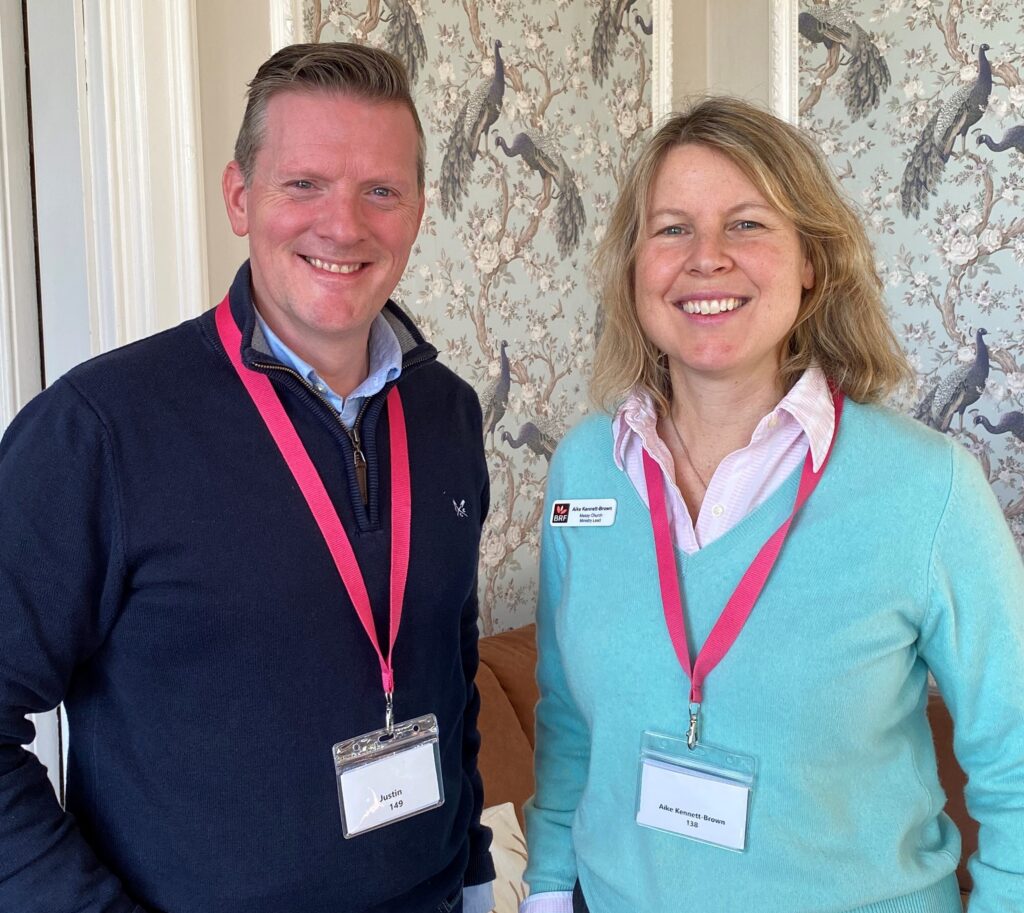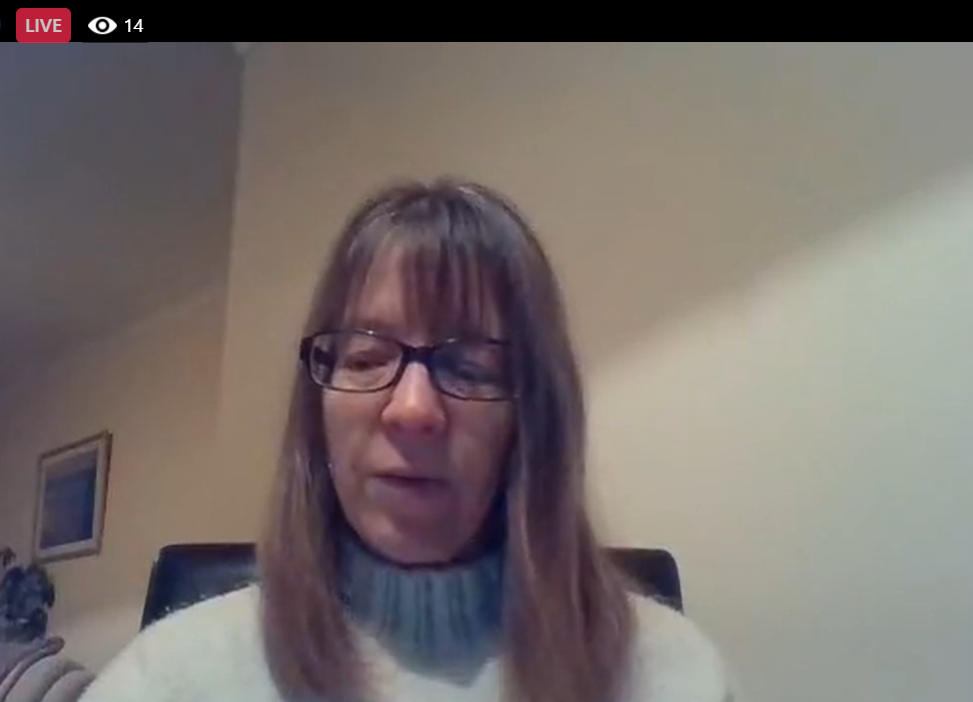The wise and wonderful Jane Butcher shared her thoughts on volunteering at the Facebook Lives on 20 January 2021:
The following is based on feedback from a variety of individuals from Messy Church and other areas of volunteering.
What motivates people to volunteer?
Wanting to help others/to benefit the community.
Wanting to give something back to an area the volunteer has gained from or has been involved with, whether personally or professionally.
Often the area of volunteering can be part of a person’s core values.
Part of call to mission.
For some the underlying knowledge that you can stop at any time is empowering.
What do volunteers most value?
Knowing what they do matters.
Being well informed.
Feeling valued.
Volunteers need to feel that the leader is in control and can be relied on, whether they are also volunteers or paid.
Opportunities to connect with the leaders beyond the work, connecting with one another as people/sharing and caring about life/shared sense of humour, etc.
What do key leaders value?
Feeling supported by their team.
Feeling it is a team where people are able and willing to contribute, bring ideas, feel respected.
What are the challenges of leading teams of volunteers?
Commitment can be variable.
Reliability.
Things not being done to the standard hoped or not being done at all.
It can take a lot of time to get things done – sometimes tempting to do it yourself to make sure it’s done.
Needs constant input from leaders. Without input the activity deteriorates.
There is a responsibility in knowing that others are, to some extent, relying on you as the leader. Volunteering in many ways is a job in all but salary, but you can’t tell anyone to do anything.
There are differences between leadership in a professional situation, where structures, timescales and expectations are inbuilt, shared and understood, and the volunteer situation, where those factors have to be developed and built up over time.
How has Covid-19 impacted your team of volunteers?
For some, Covid has drastically reduced their volunteers – some due to age and feeling they may not return to face-to-face volunteering, for some not being able/wanting to be engaged with online activity.
For some their volunteers have remained and are enabling things to happen online.
Some have become more engaged and some Messy Churches have seen greater attendance at meetings and new people willing to be involved as they have greater availability and/or being online makes it more easily accessible.
One encouragement received
It’s been more challenging to do things remotely, i.e. via Zoom, and as many of our families live rurally, it does mean that we (the leadership) have to do a lot of running around (although the volunteers are all very keen to help out in any way they can).
There has been an increased zeal to get involved and do as much as possible from some volunteers, and we’ve seen people coming forward offering to help who we wouldn’t have dreamed of either asking or imagining they’d be interested. Personally I think there might be an element of ‘people like to be involved in something that’s successful’. We do find in this area that you have to model something and once they’ve seen the vision in action they will step up to the mark and be involved. I also think that volunteers have become more confident in offering suggestions for crafts, etc. for our Messy bags and are keen to make sure that they go the extra mile.
In addition to this, from time to time we’ve asked around the church community for things like glass jars, white sheets and the people who’ve come forward to help with this has been quite mind blowing. It’s very interesting because I could’ve asked in ‘normal’ times and had very little response. It seems like it’s bringing out more commitment and attention to detail than it did previously. Maybe it’s because people have more time on their hands and fewer distractions.
Have you found creative ways to engage with volunteers during Covid?
Most are using Zoom, WhatsApp or Facebook Messenger. Most are doing planning meetings, some are also doing social catch-ups to build relationships.
Time and commitment are a key factor in judging what is right for your team.
So how might the shape of volunteering change going forwards? What might we need to consider going forwards?
Given what volunteers have said encourages and supports them, how might we continue to keep them informed, connected and in relationship with one another?
Consider using Zoom, WhatsApp, Facebook Messenger and other platforms for meetings and possibly social gatherings, as they might be suitable for many contexts.
Consider sending an email or encouragement to your teams or signing up for an online card provider whereby you can personalise cards and notes to send by email or social media. You could send a physical card by post or sign up to an online company where you can design the card and they print and send it for you.
Consider a social gathering, maybe a simple coffee, cake and chat with a set timeframe such as 45 mins. It enables those who want to be in community to do so but also may help give an idea as to people’s levels of available time and what they are looking for. If no one comes, do some online browsing and enjoy a quiet cuppa!
Given what has been said about some people engaging who wouldn’t have previously, might that encourage you to extend an invitation more widely to those you know?
If volunteers want to give something back that they have benefitted from, might there be people in your Messy Church in this position who would be interested to take on a role?
A key question going forwards is how we engage with people who are not using social media, emails, etc. While we don’t have time or maybe the answer for the question today, it is a factor to bear in mind.
Volunteer training
And finally, are we offering training for our volunteers? Not necessarily formal training but sharing good practice with the team?
I’ll just share a few things from a session Lucy, Jane and I did last week on disability awareness that might be helpful to share with your team:
It is important to refer to ‘a person with a disability’ rather than ‘a disabled person’ – the importance of valuing the person.
Speak to the person rather than just the parent/carer.
Ask what the person can do, not what they can’t do. Focus on the positive.
Take time to listen to them. Avoid bombarding them with information. Invite them to ask questions.
Offer age-appropriate activities. A 16-year-old may not want to sing nursery rhymes, even if their functional age is lower.
Offer a space where the person can have some distance if something is too loud. Be careful not to isolate but offer some suitable space to still be involved but at a more comfortable level.
Don’t try and explain everything on your advertising. Offer a contact so people can get in touch to ask questions.
If you do want some training on other areas provided externally, please do contact the Messy Church Trainers team.
You may also like

Creating Safe Spaces
25th Nov 2024As our media fills up with stories of abuse and coverups within religious organisations, it was very timely that children and family ministry denominational leaders met to discuss ‘Safeguarding’ at the Children’s Ministry Network Conference November gathering at High Leigh Conference centre.

Woman at the Well
3rd Nov 2024After a busy 3 day of leading seminars, networking, and being on the Messy Church stand at Church of Norway conference, I had the opportunity to visit a sauna, called The Well, Oslo. It’s the Nordic region’s largest Spa in Scandinavia, with baths, saunas and spa treatments from all over the world.

Seaside Sojourn
21st Oct 2024It seems that I always get booked to deliver in-person training at seaside locations. This trend continued last weekend, as I headed off to the coastal village of Seaton, Devon.

Our Survey Said…
7th Oct 2024Back in February 2024, Church of England kindly sponsored a survey, completed by 330 Messy Church leaders. This is what we...

